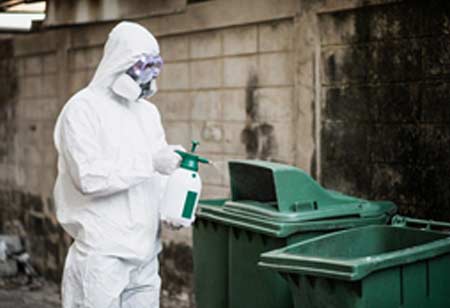Thank you for Subscribing to Environmental Business Review Weekly Brief
Hazardous Waste Management: A Key Element in Environmental Protection
Effective hazardous waste management protects human health, preserves ecosystems, ensures regulatory compliance, promotes sustainability, and supports safer industrial growth through proper waste segregation, treatment, and disposal practices.

By
Environmental Business Review | Wednesday, October 08, 2025
Stay ahead of the industry with exclusive feature stories on the top companies, expert insights and the latest news delivered straight to your inbox. Subscribe today.
Fremont, CA: Hazardous waste management plays a critical role in maintaining environmental integrity, protecting public health, and supporting industrial sustainability. As industries expand and production processes intensify, the volume of chemical, biological, and electronic waste continues to grow. Without proper management, these wastes release toxic substances into soil, water, and air, leading to long-term ecological damage and serious health hazards for communities. The importance of managing hazardous waste extends beyond compliance; it is a foundation for sustainable development and environmental stewardship.
Environmental Protection and Public Health Benefits
The most immediate and vital benefit of hazardous waste management lies in its power to protect the environment and human health. Dangerous substances, including heavy metals, solvents, pesticides, and radioactive materials, can contaminate ecosystems for decades if left unmanaged. Waste incineration, chemical neutralization, and secure landfilling reduce the risk of environmental contamination and ensure safe disposal. In urban areas, effective hazardous waste programs prevent illegal dumping and open burning, which contribute to air and soil pollution.
Hospitals and laboratories benefit from biomedical waste management systems that prevent the spread of infections and ensure the safe handling of sharps, pathological waste, and chemical reagents. By reducing exposure to toxic compounds, hazardous waste management minimizes the occurrence of respiratory diseases, cancers, and neurological disorders among populations living near industrial zones. The efforts strengthen public health systems and contribute to cleaner, safer living conditions.
Economic and Sustainable Development Advantages
Beyond environmental protection, hazardous waste management offers tangible economic and sustainability benefits. Recycling and recovery processes enable industries to reclaim valuable materials, including metals, solvents, and plastics, reducing the need for raw resource extraction. It cuts production costs and conserves finite natural resources. By adhering to proper waste management standards, businesses avoid heavy fines, legal liabilities, and reputational damage associated with non-compliance.
For governments, establishing hazardous waste infrastructure, such as treatment facilities and collection networks, creates employment opportunities and fosters the growth of environmental service industries. Well-managed waste systems contribute to achieving circular economy goals, where materials are reused or repurposed rather than discarded. Sustainable hazardous waste practices enable countries to meet their international commitments, thereby reinforcing global cooperation in minimizing the transboundary movement of hazardous waste.





